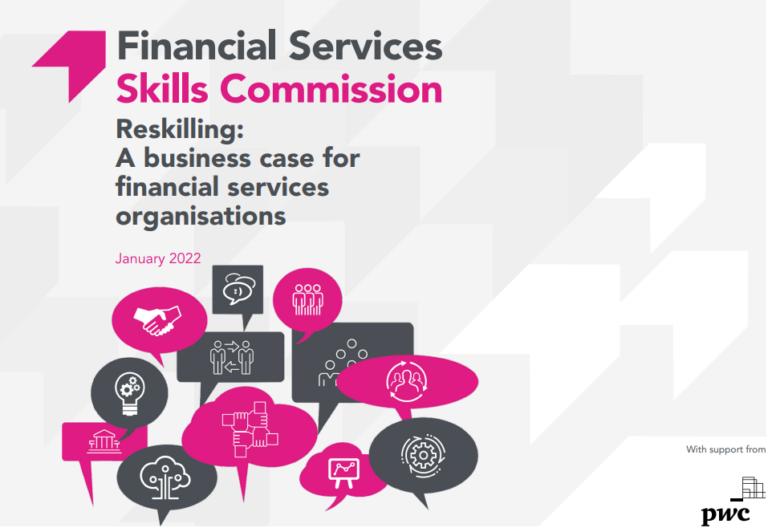19 June 2024
Our call to action for next Government to drive growth through prioritising skills

Our call to action for next Government to drive growth through prioritising skills
As we look ahead to the election, a call to action for skills in financial services for the next Government is published today by the Financial Services Skills Commission (FSSC) – see: FSSC Call to Action.
Increasing the skill levels of the UK workforce is essential to solving Britain’s productivity problem, delivering stronger levels of sustainable growth, and helping the country to compete on the world stage. This is as true of the UK’s globally successful financial services sector as it is of any other.
Given rapidly accelerating moves towards embedding Artificial Intelligence in business processes and strategy, it is crucial for all political parties to recognise the importance of ensuring that our workforce has the technical and people skills to gain maximum competitive advantage from new technologies to develop new insights and use them wisely to serve our society and economy.
We need a refreshed approach from government that recognises the broad range of stakeholders involved in upskilling and reskilling our current and future workforce, to get them to work more closely at a national, regional and local level, which can rebalance our economy and drive innovation and rewarding work.
Our call to action is for the next government to:
1 Drive growth by building skills
- Put business skills need at the heart of the skills system and publish a clear strategy for skills that directly supports the growth of financial services. Create a National Skills Plan – co-created with industry – setting out the priority steps needed to turn round historic underinvestment and focus on the priority skills needed to drive growth, support technological change and become a world leader in decarbonisation of the economy.
- Integrate employers into Government skills strategy: Create a national skills body that is employer led, taking a sectoral perspective, working with existing industry-led bodies at all geographic levels: local, regional and national.
- Agree sector skills deals with industries, containing flexibilities and co-investment to design focussed workforce development plans that tackle skill shortages impeding growth.
2 Build a highly skilled workforce
- Significantly increase the numbers of people securing high-level qualifications (level 4 and above) especially in critical skills shortage areas such as tech, data, AI and sustainability. Increase the availability of such courses and incentives to attract individuals and businesses to train.
- Introduce flexibilities to the apprenticeship system to increase the amount of training delivered. The UK must rapidly build a highly skilled workforce to maintain competitiveness.
- Enable apprenticeship levy funding to be used for high-level, professional development training and reskilling bootcamps. Utilising existing accredited and industry-supported qualifications and courses aligned to chartered professional qualifications
- Green finance skills: Enable rapid upskilling on green skills by allowing modular and stackable green finance qualifications to be funded via the apprenticeship levy
3 Boost growth by building skills and talent across UK regions and nations.
- Regional skills development: Create strong talent attraction by locating senior & leadership roles in regional centres, to attract and retain highly skilled talent to these areas and act as a magnet for other talent, as has been done by locating the UK Infrastructure Bank in Leeds.
- Boost the availability of skills across the regions through strategic collaborations between employers, education providers, and regional government.
Claire Tunley, CEO of the FSSC said:
“Financial Services employs 1m people across the UK and plays a vital role in our economy and the transition to net zero. Skills are essential to enabling growth and innovation as the sector goes through a time of rapid change including technology, AI, cyber, demographic change and green finance. The sector also needs to be as diverse and inclusive as possible to represent all of the customers and businesses that it serves.
This call to action gives the next Government a clear roadmap for making skills a high priority so it drive economic growth particularly in financial services.”
Ends.
Note to Editors:
The full Call to Action is available here: FSSC Call to Action
For further information please contact:
Claire Tunley, CEO, FSSC
Email: claire.tunley@financialservicesskills.org
Graham McMillan, Adviser to FSSC
Tel: 0772 0772 909
Graham.mcmillan@financialservicesskills.org
Financial Services Skills Commission
The Financial Services Skills Commission is an independent, non-partisan, member led body, representing the UK financial services sector on skills. We work directly with the sector and advocate for innovative collaboration to ensure that businesses have the talent and skills they need for the future.





